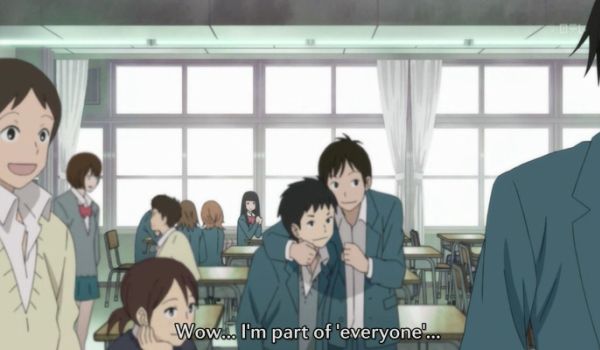“As if I don’t do enough of this in real life! AAAARRGH!”
One thing that has not changed from The Sims 2 to The Sims 3 is that if I play it for too long, I get upset. Â There is not discernible reason for this. It is just a slow simmering discontent that gradually grows toward boiling anger. In so far as I can find features in the game to irritate me, they are not in proportion to the feelings, which anyway seem to come from within and grow independent of the actual playstyle. Â (Except for making sure to take long breaks regularly.)
It has been this way for me for a long time, although I am not sure how long. I think it has increased gradually over the last few years, I did not notice it before. It is not just these games. Â If I immerse myself in one particular 2-dimensional world for long, I will start feeling discontent.
You may remember that I think of the universe as being layered, or rather having a gradient. As you move upward, it becomes harder and more timeless. (For instance the laws of mathematics must necessarily be at least as old as the universe itself, and have not changed at all in these eons.) As we move downward, the world becomes soft and malleable, but also temporary and less real. Think of a daydream, for instance. Â You can do pretty much anything you set your mind to in a daydream, but it disappears more easily than fog before the morning sun.
Lower worlds are the worlds we create, higher worlds are the worlds that create us.
When I dive into lower world for a long time, there is a kind of suffering. Even if I have fun and want to play just five minutes more, there is at the same time a growing discontent inside me. I feel that I do not belong here, it is not right. This is not so much a feeling of guilt – I do this on my own time, and there is no one waiting for me – but more a feeling of loss, I guess you could call it. Or perhaps I am just reading that into it because I know it is true. But it is certainly a feeling of being misplaced.
Interestingly, this feeling is not noticeable if I only visit each world briefly. It is as if I need to immerse myself in them for it to happen. I liken this to diving. If you dive into the sea, an element where you don’t belong, it may be pure fun at first, but you cannot breathe there, so you will start to suffer, and this suffering will increase faster and faster until it is unbearable. Â My immersion in lower worlds is a much slower process, as it can take an hour or two before it becomes distinctly unpleasant. Â But eventually it becomes worse and worse, and I have to get out of there.
You may have seen YouTube clips of young people who go berserk in front of their computer, but this seems to be when they play competitive games, particularly games in which their characters kill each other. Â But I feel this mounting frustration even from the very peaceful, cute and charming Sim games, loved by women and children. Â Actually it sometimes takes longer when I play City of Heroes, if I team up with other superheroes. Their players are after all people from the third dimension, so there is a kind of influx of reality from there.
There are people who are known as “otaku”, a Japanese word for geeks of 2-dimensional worlds like games, comics and cartoons. In English this is not a very negative word, it just says that they enjoy Japanese serial arts. But in Japan where the concept arose, it means people who have drowned in the lower worlds. They are no longer able to live meaningfully in the 3-dimensional world. Â In my paradigm, you may say they have lost so much mental substance, becoming adapted to the softer world of fantasy, so this ordinary world is too hard for them, to sharp, too unyielding, too demanding.
Conversely there are those who have adapted to higher worlds, but these are few and we don’t hear much about them. To them this so-called real world is like a fog and the people in it like shadows, except for their spirit or inner light. All these familiar forms are only temporary, and cannot make the heart content. Â For we were made to be adequate to the ultimate reality, the Light, the Alpha and Omega, Infinity and Eternity. The universe itself is not enough to satisfy us. Â This is true, but it is not obvious as we start out. Â Even now, it is not exactly a problem for me. Living in the ordinary world does not constrain me the way diving into lower worlds does. Â But if I live till I am 120, I will likely find this world gradually more constraining. Â Right now I feel like I could enjoy it for millennia, but if I keep growing, there may well come a day when I shall rejoice when exiting this world as well. Â That is not to say that I’ll never start another game of physical existence – that is something I don’t know right now. Â For now, this one is enough for me, and I feel like I have only recently begun to understand it.










